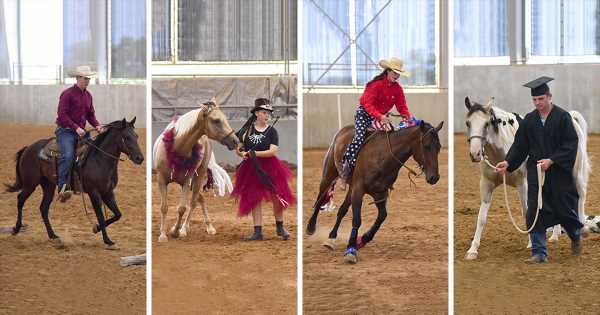4-H Youth Trainers Help Texas Horses Win in Many Ways

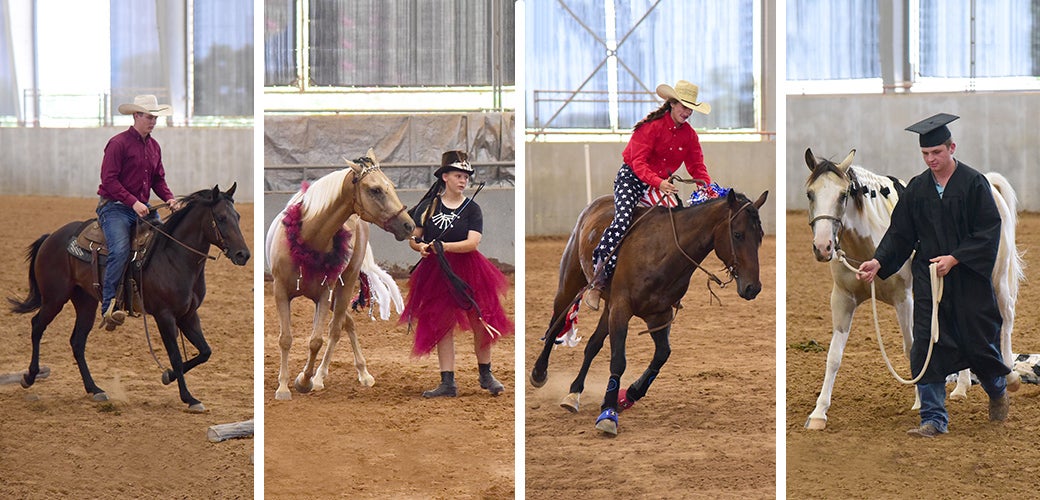
On July 23 in Bryan, Texas, a special group of budding trainers presented seven horses during the 2nd Annual Texas State 4-H Horse Show as part of the Texas 4-H Homes for Horses program in partnership with the ASPCA Right Horse program.
The Texas 4-H Homes for Horses project connects ASPCA’s Right Horse Adoption Partners with 4-H youth who train and prepare the Partners’ horses for adoption before competing with them in the show. The seven horses featured at this year’s Texas State 4-H Horse Show were sourced from the Humane Society of North Texas.
“At some point in their lives, each of these horses found themselves at a point of transition, facing an uncertain future,” said Christie Schulte Kappert, Program Director of the ASPCA Right Horse program, which helped Texas A&M Extension develop Texas 4-H Homes for Horses with grant assistance from the Texas Thoroughbred Association.
At the show, 4-H teens participate in a variety of horse handling and riding competitions to demonstrate the progress the horses achieved over the course of the 4-H year.
“Our program helps Texas youth create positive outcomes for at-risk horses by making them adoptable,” said Lexi Romo, Homes for Horses Lead Graduate Advisor, Texas A&M/4-H Extension. “Texas has the highest number of horses in the country, so we must develop more opportunities and programs to mitigate the abuse, neglect, and abandonment of these beloved equines.”
Ava & Sadie
After watching last year’s 4-H Homes for Horses competition, Ava told her parents, Micah and Jennifer, that she’d like to compete in this year’s show. Ava, who recently turned 15, was matched with Sadie, a 13-year-old Palomino mare, last November.
“I heard she’d been tied to a post and abandoned,” Ava said. “She was underweight and nervous, but good with other horses and likes to be around people.”

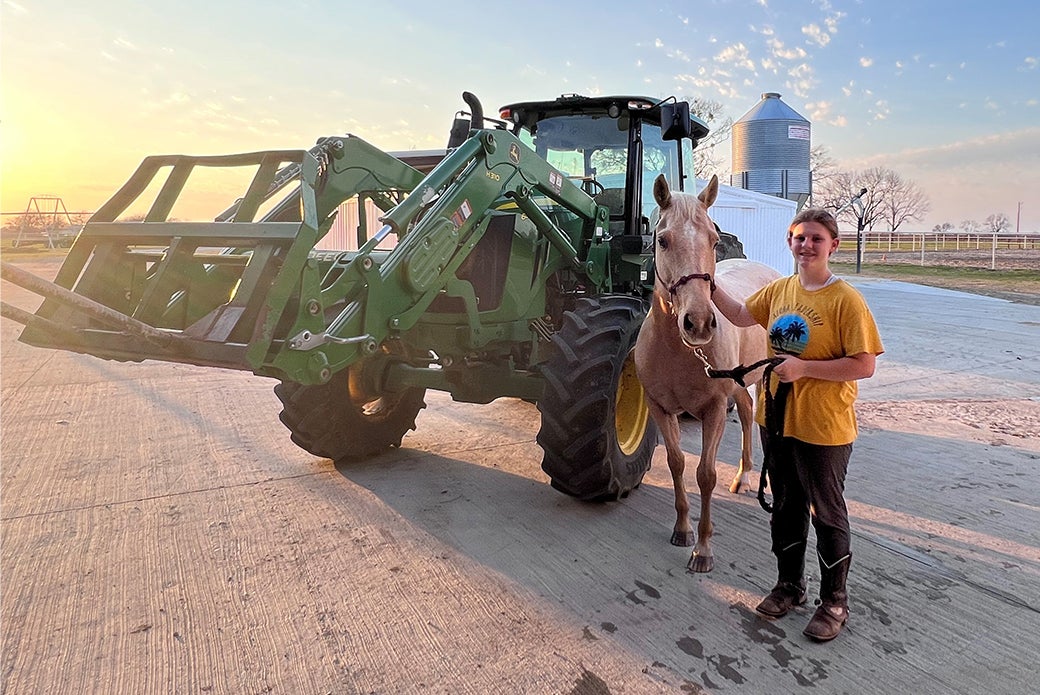
“Sadie’s a decent little horse,” said Jennifer. “She wants a job, something to do.”
While Ava and Sadie took easily to training, they also tackled some obstacles. One of those challenges was teaching Sadie to ground tie (stand still on command when not tethered to anything).
“She was afraid I wouldn’t come back for her at first, so I’d leave her where she could see me and then I’d come right back,” said Ava. “Every day I’d walk a little farther or go behind the barn where she couldn’t see me, but she soon realized I’d come back to her. It didn’t take long.”

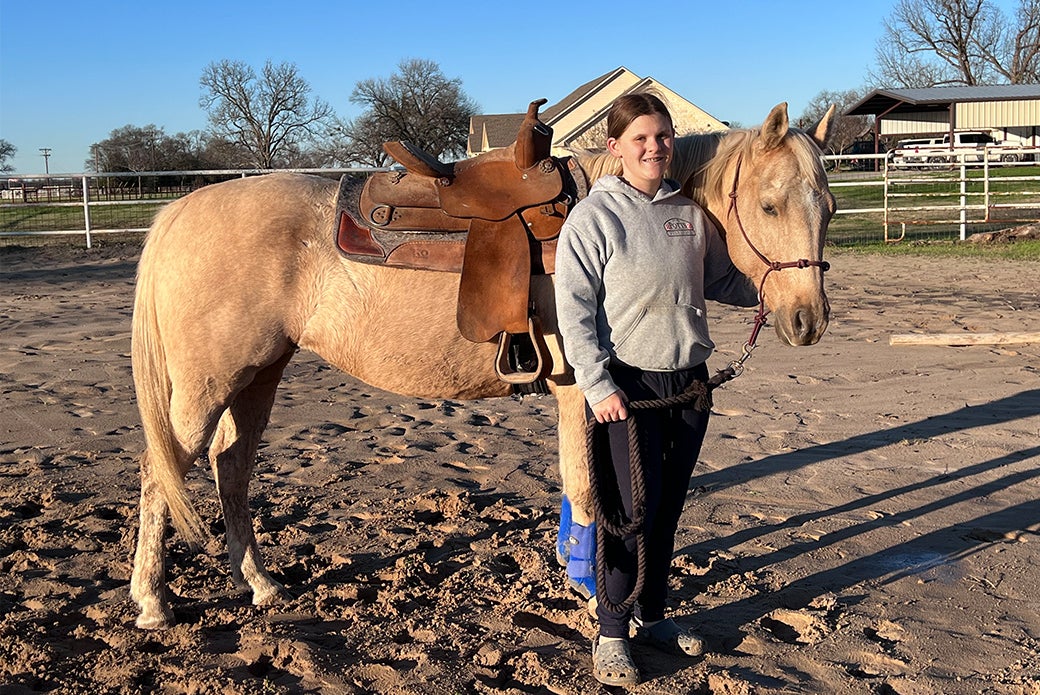
Sadie also avoided picking her feet up because her soles were thin and prone to tenderness. This made it difficult to clean her hooves and remove rocks and dirt.
“We gave her minerals to get her hooves harder,” said Ava. “Now I can lightly rub my hand down her leg and apply pressure, and she lifts her foot. It took a month before we could put her front shoes on, but now she stands well.”
To beat the Texas heat, Ava trained Sadie in the mornings and hosed her down frequently.

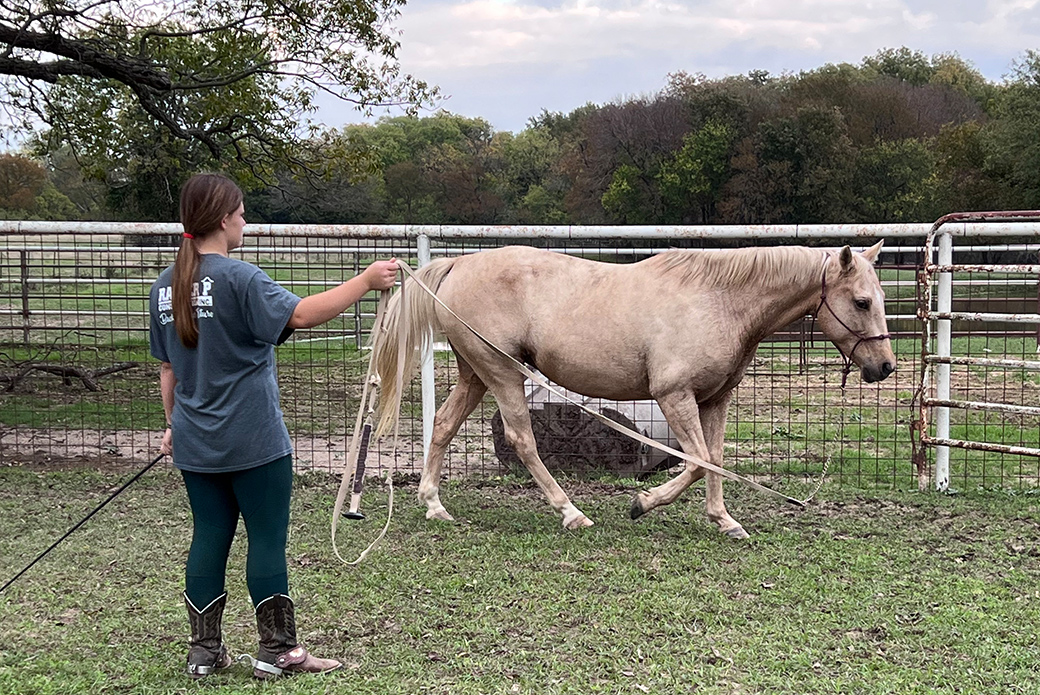
“I naturally wake up very early and work two horses a day,” said Ava, who has been riding since she was six years old. Her other two horses are Angel, a nine-year-old Palomino mare, and Archie, a four-year-old red roan Appaloosa—both from the Pony of the Americas Club for young equestrians, of which Ava is a member. She presented both horses at this year’s show in the stock horse and Western categories.
Ava’s parents, both educators, support her desire to compete. The family, including Ava’s younger brother, Max, lives on a cattle farm near Lone Oak, 60 miles northeast of Dallas. Ava also shows lambs at county competitions and encourages other teens to participate in Texas 4-H Homes for Horses.
“It’s a great program that offers lots of learning experiences,” said Ava. “And it gives people the opportunity to train a horse that doesn’t have to be an expensive show horse.”

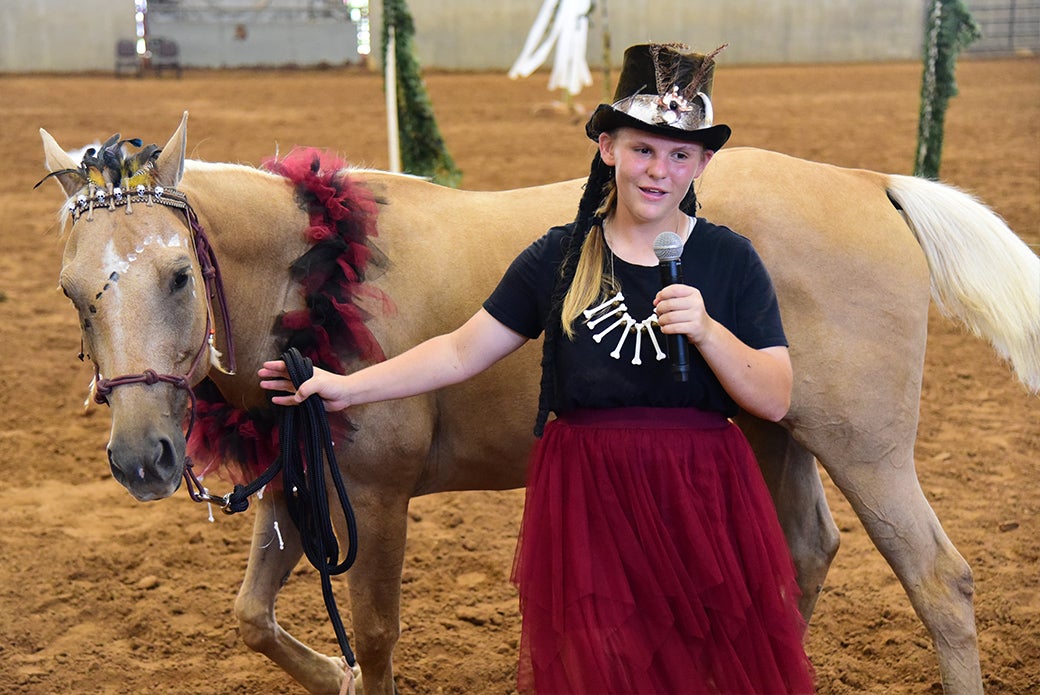
Sadie is rideable, but Ava opted to present her in-hand (walking alongside Sadie and helping her navigate obstacles), performing a three-minute routine to Bobby Bare’s “Marie Laveau.” Ava and Sadie won Reserve Champion (2nd Place) in the competition, earning a $1,500 scholarship from the Texas 4-H Foundation. After the show, Sadie was adopted.
“It was a little sad to see her go,” Ava said with mixed emotions. “It’s amazing how far she’s come.”
Peyton & Rocket, Kayl & Dublin
When an agent for the Texas A&M AgriLife Extension Service encouraged 14-year-old Kayl Schueler to try the Texas 4-H Homes for Horses program, her 17-year-old brother Peyton also jumped at the chance.

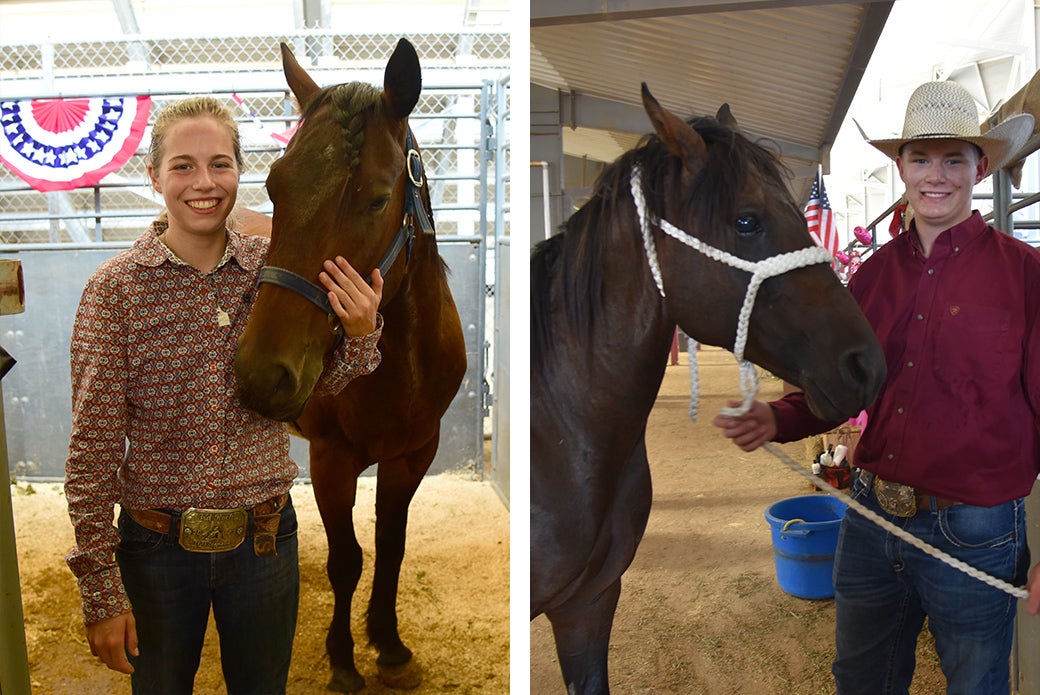
Kayl and Peyton were each matched with Quarter Horses; four-year-old Dublin for Kayl, and eight-year-old Rocket for Peyton.
“They were two wired horses who had not been around people,” Peyton said. “You could barely put a halter on, and they wouldn’t get in the trailer. Rocket was timid around the saddle and freaked out when I put my foot in the stirrup.”

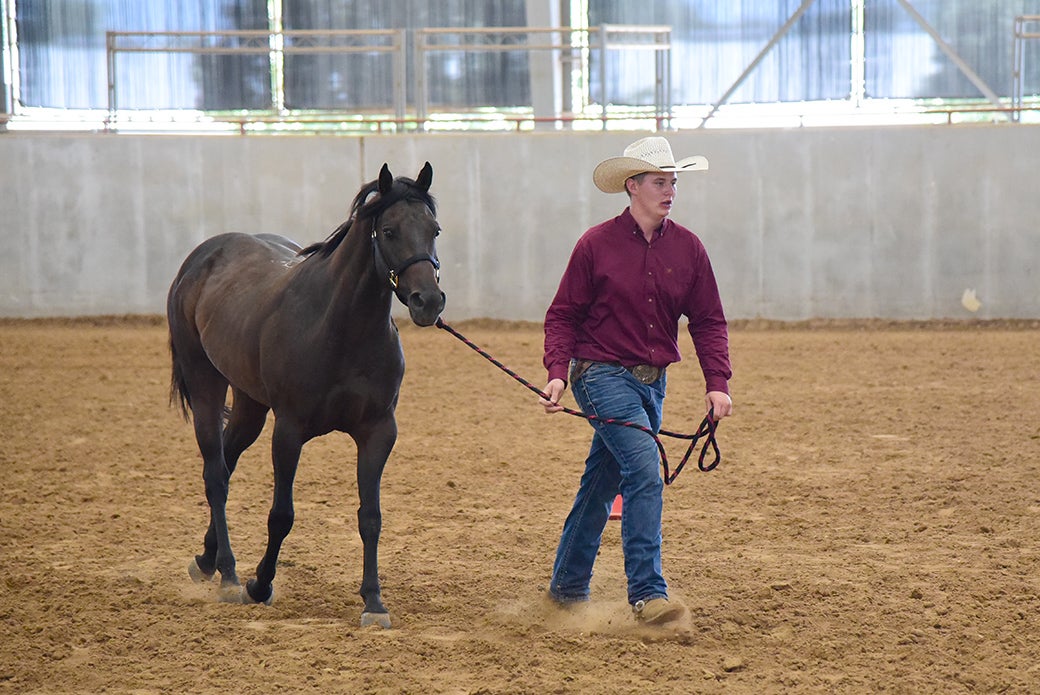
Peyton said Rocket took three months to start under saddle and tossed him to the ground twice. “At one point, I was ready to quit, but my parents encouraged me to keep going,” he said. “I learned to expect the unexpected. Continuing to work with Rocket helped build my confidence.”
After months of training on the family’s working ranch, both horses are now rideable.

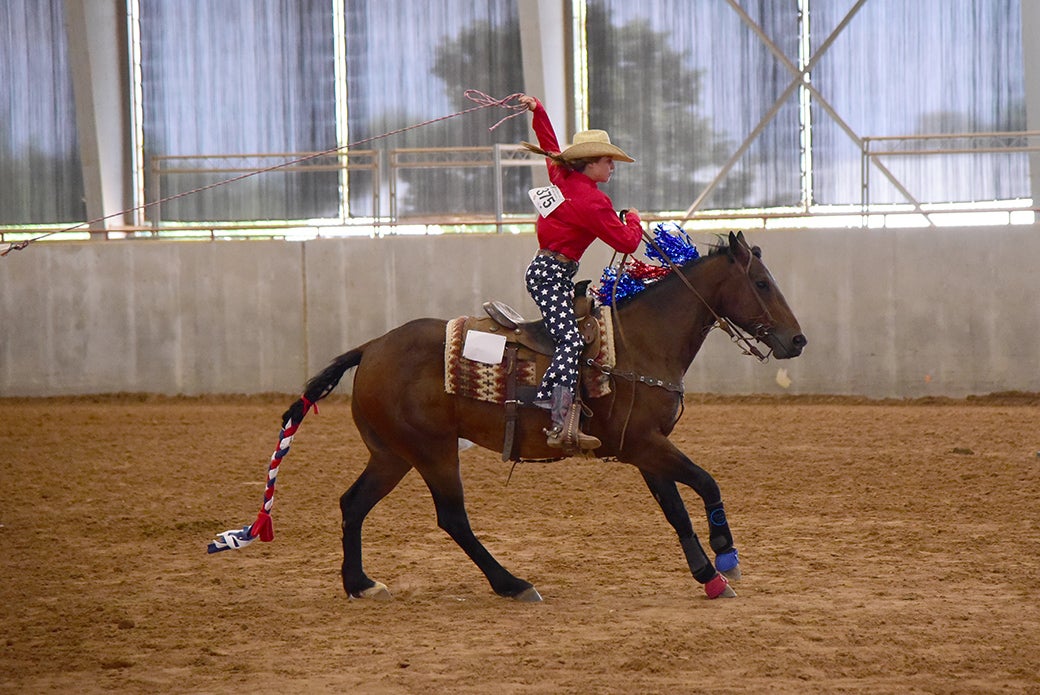
“They’re turning out to be good horses,” said Peyton.
It helps that Peyton and Kayl’s father, Kevin, is a farrier, and their grandfather is a large-animal veterinarian. The family has four other horses on their ranch near Friona, Texas, 65 miles southwest of Amarillo. Peyton, Kayl and their two younger siblings also show lambs, goats and pigs.

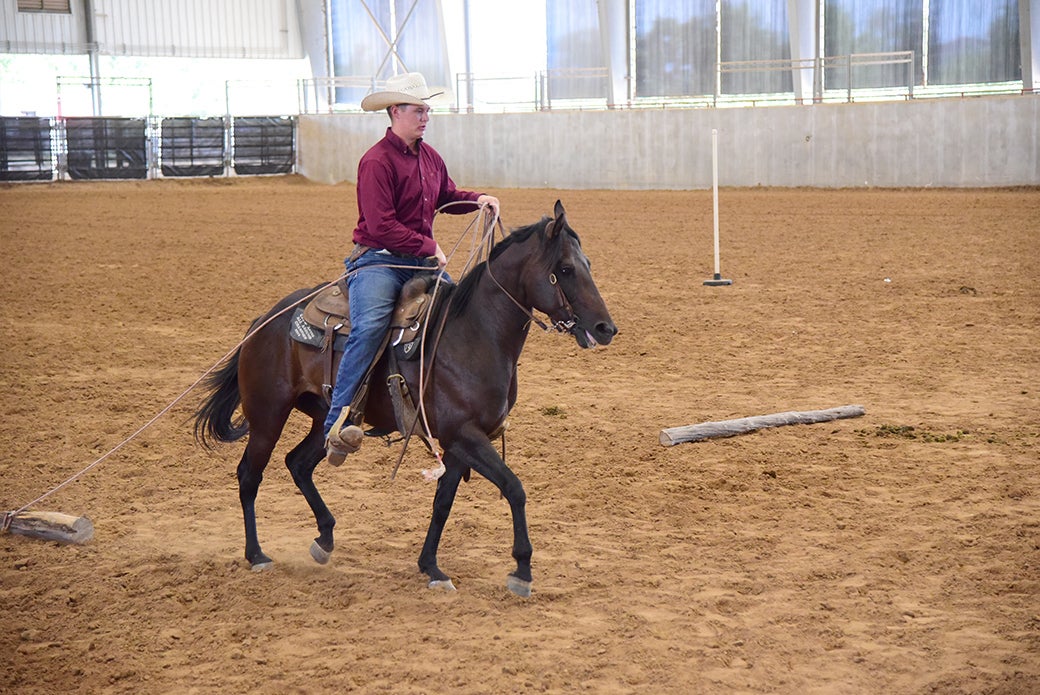
“I once helped my dad start a horse,” Peyton said. “He’d be first to get on, and I’d help touch up and fine-tune. With Rocket and Dublin, we started them ourselves. It’s been a learning experience.”
Kayl said Kevin helped her as well.

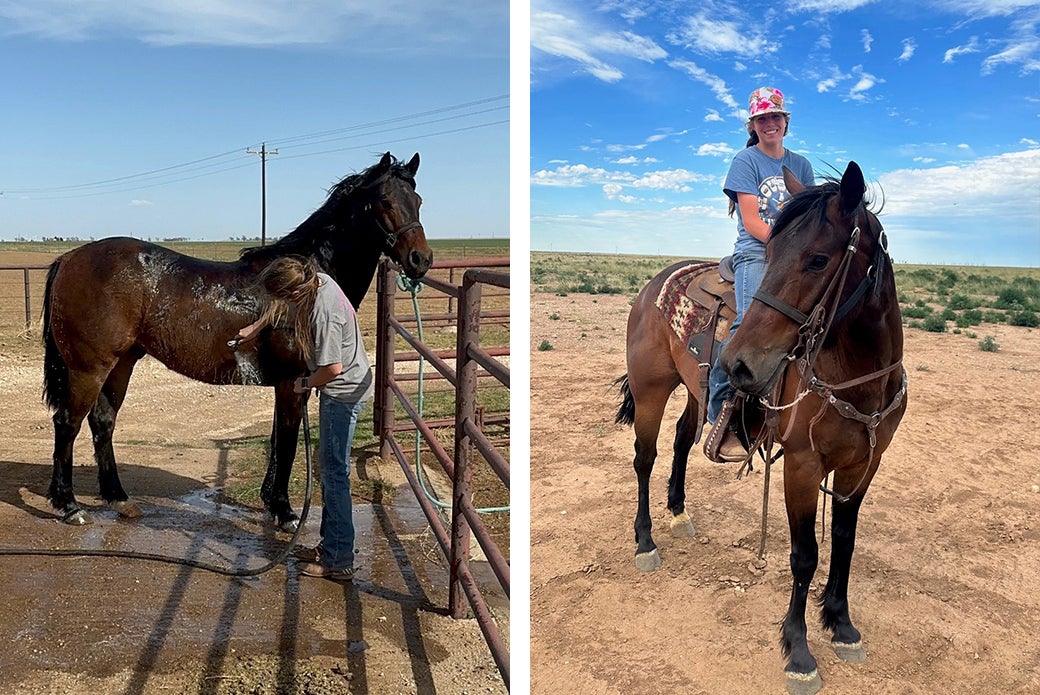
“Dad didn’t do it for me,” Kayl told the judges. “But he told me what to do. It’s been rewarding to take an unhandled horse and build a bond.”
While Dublin “has a good heart,” according to Kayl, there were mishaps in their training experience.

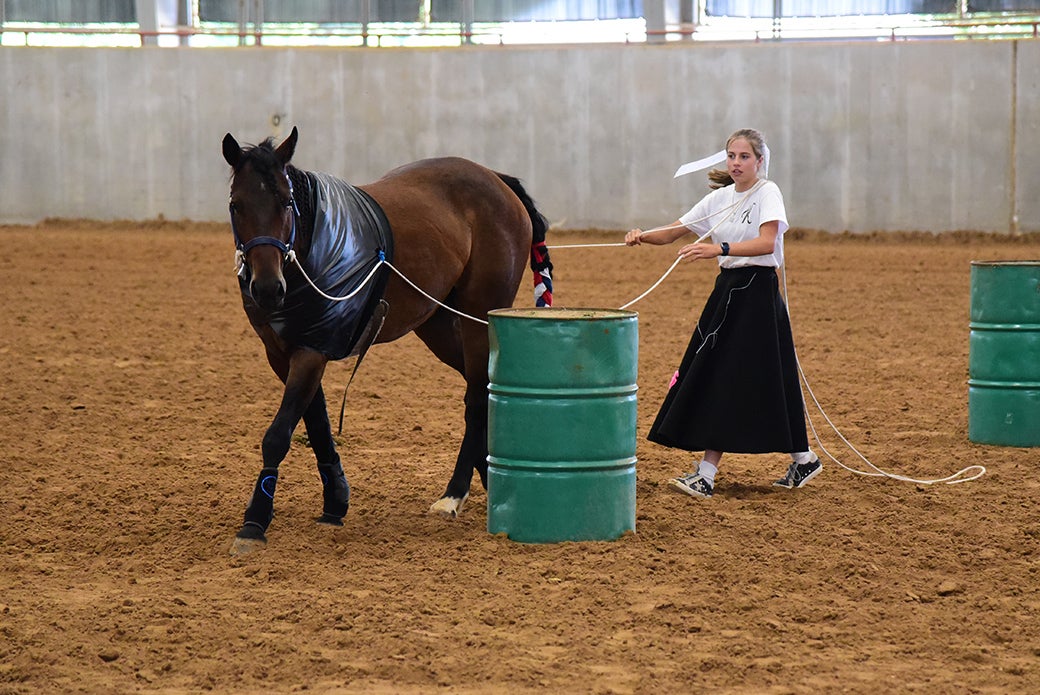
“I learned to go with the flow,” she said. “Just getting him used to me putting decorations in his tail and mane was progress.”
Peyton and Kayl each opted to keep their horses.

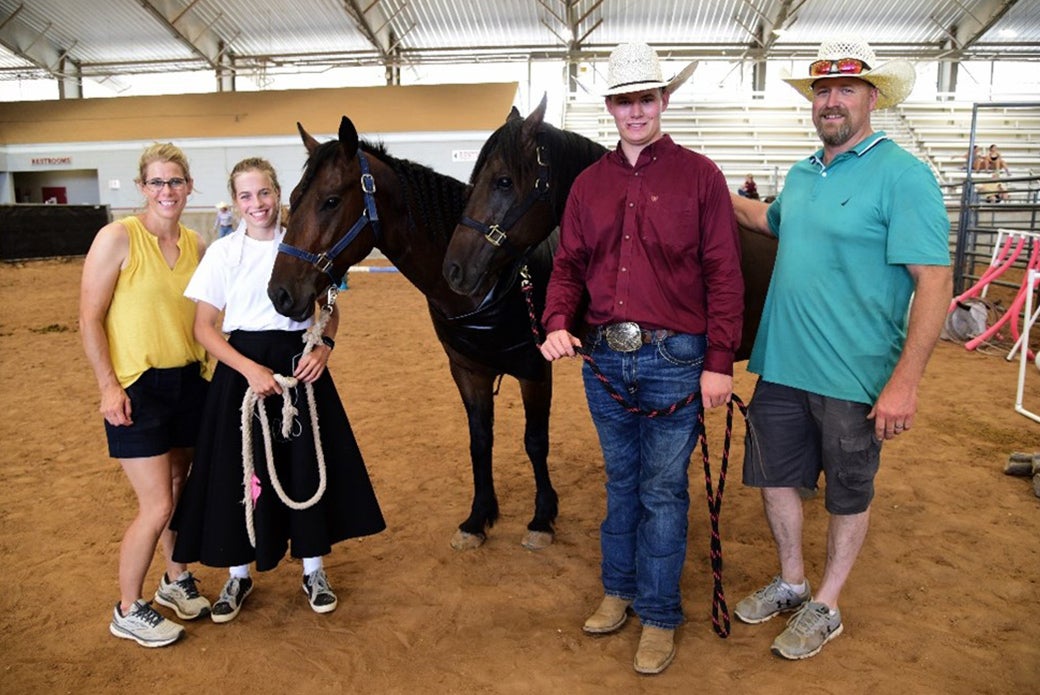
“We had the idea of adopting Rocket and Dublin the entire time,” said Peyton. “We can always use another horse.”

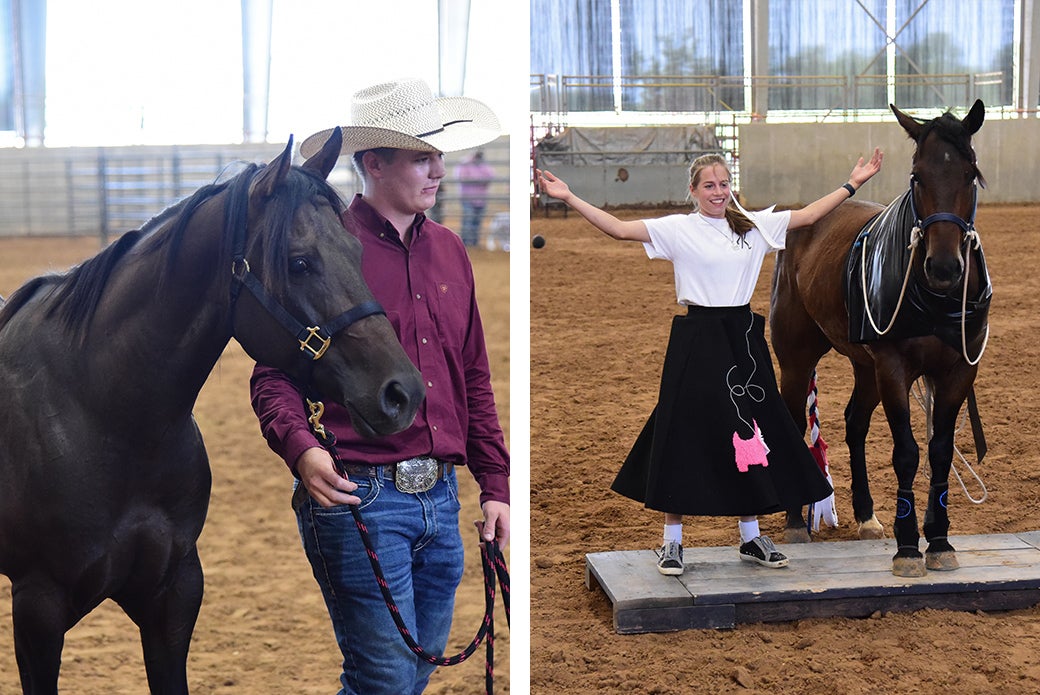
Peyton placed 4th in the Under-Saddle and In-Hand competitions, earning $1,000. Kayl placed 2nd in the Under-Saddle earning $1,500, and 3rd in the In-Hand competition, earning $1,000. It was the siblings’ first time competing in a show.
David & Hazel
Last year’s first-place under-saddle winner, David Kendrick, returned to the show this year with Hazel, also called Hazelnut, a five-year-old Paint mare. In his last eligible year of competition, David defended his title as Grand Champion of this year’s show, placing 1st in both the in-hand and under-saddle categories and earning $4,000 in scholarships.

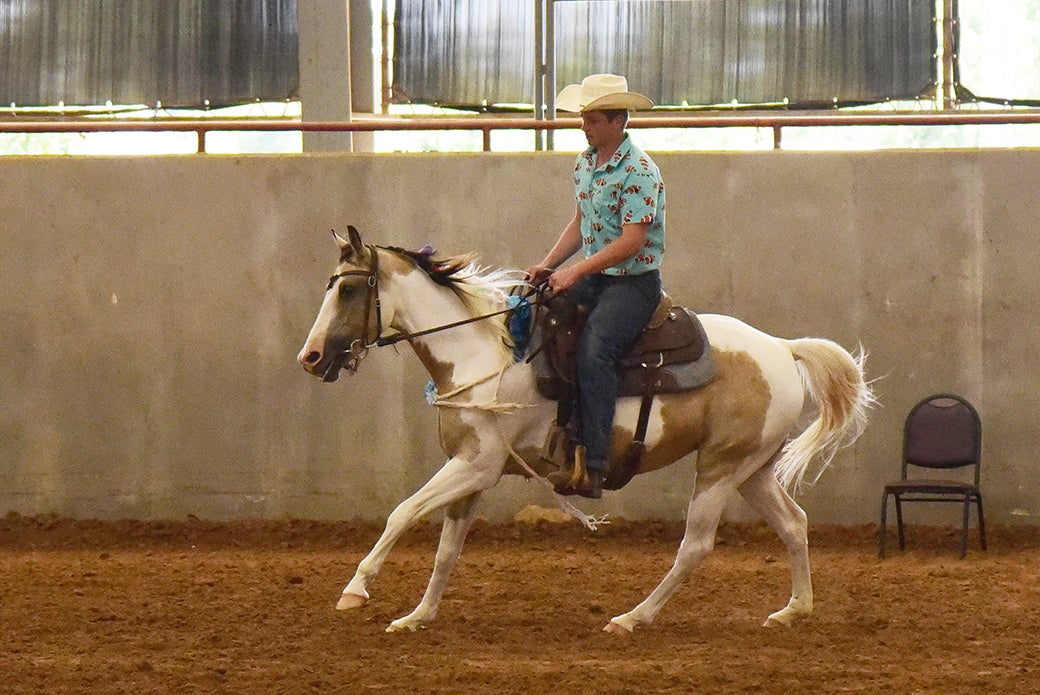
Even more importantly, David found an adopter for Hazel before the show: Heather Jones of Princeton, Texas. An experienced horse owner and friend of David’s family, Heather had followed Hazel’s progress on social media and was excited to adopt her.
“David’s goal was to make Hazel marketable, and he did,” said Samantha Kendrick, David’s mother.

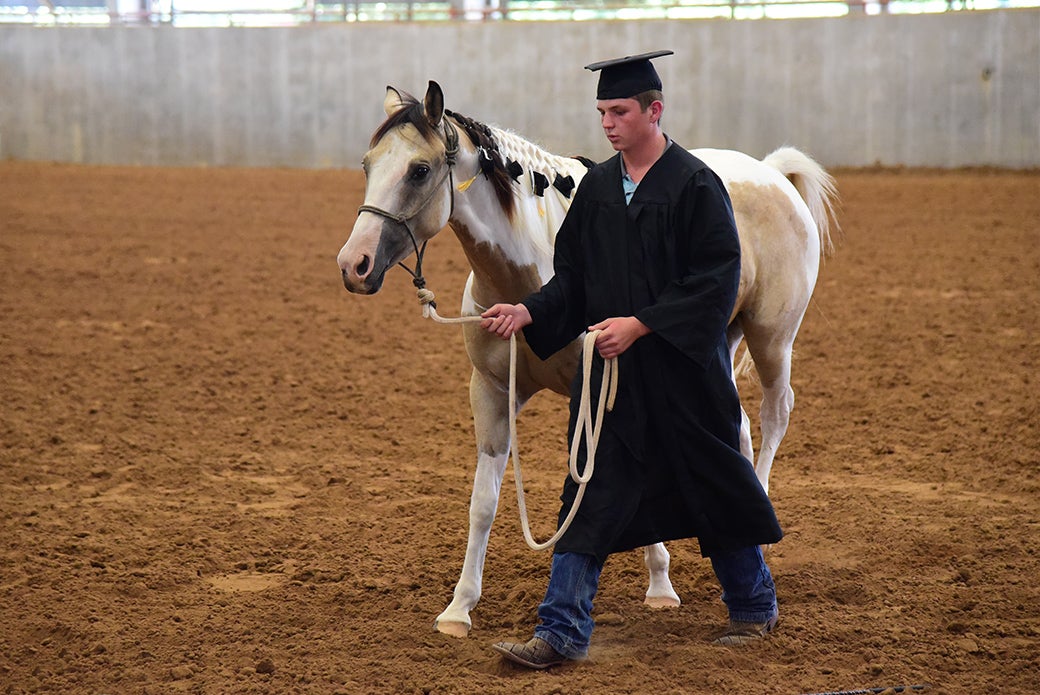
Helping Hazel reach that point wasn’t easy. Initially, Hazel was underweight and poorly nourished.
“We had to get her up to a good weight before training her,” David said. “Once she had some muscle mass, we could build trust and a relationship.”
Even though Hazel had never worn a saddle or a bit, David was riding her by January.

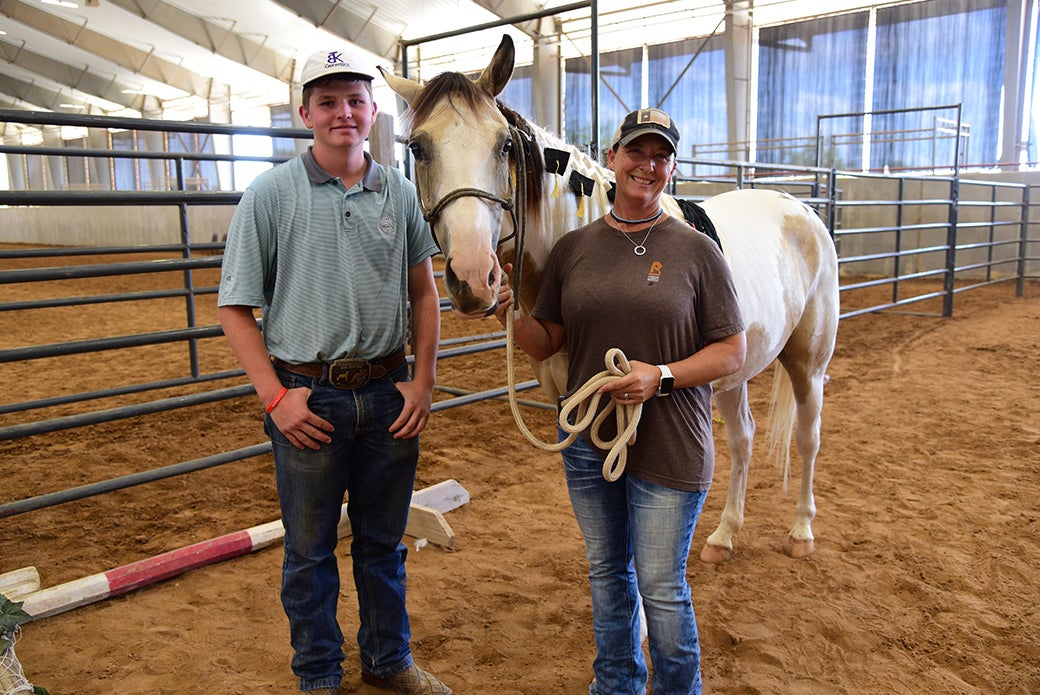
“Being able to take homeless horses, train them and make them adoptable so they can find new homes is very rewarding,” he said. “It’s a needed program to solve a large problem in the horse industry.”
David plans to attend Texas A&M University this fall but has not declared a major.
“One thing I do know is that I’ll continue to be involved with horses and learning more about the equine industry,” he said.
For horses and people who love them, that’s a win-win situation.

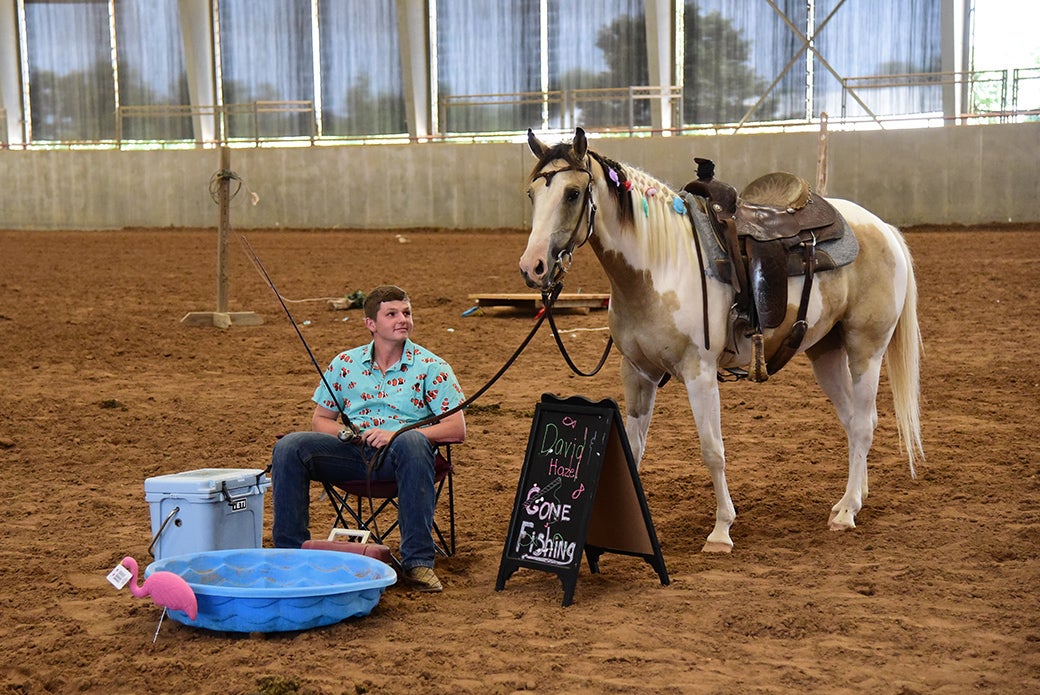
Source: Read Full Article
